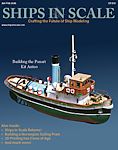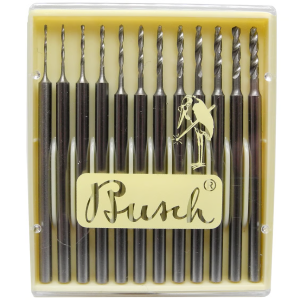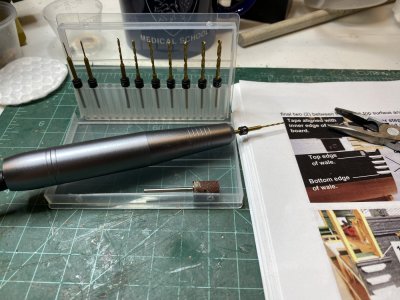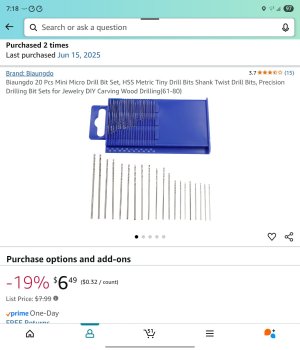Does anyone have suggestions for some decent micro drill bits that actually work? I have a few sets from #60-80 but I find them mostly dull right from the beginning. I am not adverse to getting a good set for a few dollars more, if they will work!
Rob
1. Don't buy sets. Waste of time. You are going to break drills: ESPECIALLY CARBIDE DRILLS.
2. Buy individual straight shank black carbon jobber twist drills in individual sizes
(10 in a pack) over Ebay. Drills break. Do not buy individual drills. Buy in bulk.
3. At a scale of 1/48, sizes 70, 72, 74, etc to 80 (0.0135in) are the most useful.
You really do not need every size. Skipping some drill sizes works just fine.
4. Eventually, you find that you NEED only a few sizes.
Just buy a bunch of the sizes you actually use. You WILL break drills. Buy in the lot size that is the cheapest. I buy 30 or 40 at a time. On some types of holes, I have broken one drill per hole. I hate it, but that is the way it goes. I also use the Sherline mill and their "sensitive drill bit": a GENIUS device that I use almost exclusively, but I still break a bunch upon occasion. I just stopped arguing with reality. Learn to make reality as cost effective as you can.
5. These small drills (mostly Chinese) are not all manufactured the same (some are just sh*t).
Keep track of the best manufacturer (usually I buy by the color of the pkg) and buy from them.
The system is not perfect, but it works at a minimal cost.
6. Do not throw away broken drills. Sharpen them up (as best you can) to make reamers and shorter drills and glue them into 3" dowel pieces; use both sides of the break. These repurposed drill pieces will be just as useful as the originals. These "hand drills" are especially handy in fine-tuning
blocks and deadeyes. The repurposed twist sides are especially handy as reamers.
7. I rarely throw away any piece of metal (or wood). Eventually you will find a repurpose for
everything.
8. I rarely buy anything anymore. I have jars of metal bits that seem to supply every need (one
way or the other) for any special purpose tool that I may need. My building costs have almost dropped to zero (after you pay for the Sherline mill and 17" lathe - oh well); with the exception of CYA.
9. Hope this helps.












